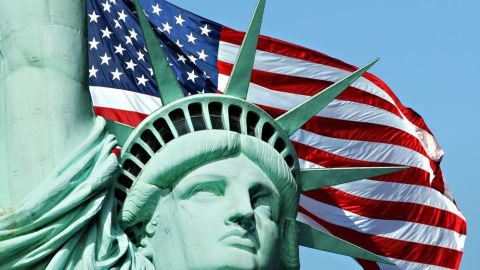Is the U.S. Still the “Land of the Free?”

What’s the Big Idea?
Give me your tired, your poor, your huddled masses yearning to breathe free… Immigration is an integral part of the story Americans tell themselves about who they are. A paper in the Journal of Politics found that more than 90% of Americans believe that just thinking of one’s self as American is an essential factor in being American. And the U.S. is one of the few countries in the world with no official language – surely the hallmark of a society that is not only tolerant, but pluralistic.
So why is it so difficult to immigrate here?
That’s the question Kevin Ryan, founder of the Internet startup Gilt Groupe, has been asking for years.“You might have someone from Pakistan, who has a masters in Computer Science and wants to come to the United States to get a job. I would argue that that’s incredibly beneficial for our economy,” he says. “It’s really becoming a business problem.”
It’s also a political one. There’s a reason why both Democratic and Republican politicians get tongue-tied when the subject is raised in debates: the mythology of the melting pot looms left, right, and center – but even as it retains its prominent place in the American psyche, the facts suggest that the ideal of a “nation built by immigrants” may be receding.
What’s the Significance?
According to the United Nations’ World Population Policiesreport, the percentage of foreign-born citizens in the U.S. pales in comparison to countries like Canada and Singapore. In terms of diversity, the land of the free is actually much closer to Sweden, a society that most Americans would probably consider homogenous.
The H1B visa, for instance, allows international students and professionals to stay in the country for a period of six years, but is capped at just 85,000 per year. One Australian writer who recently obtained a green card estimates that she spent more than a year (and $4000) in the process – despite having been sponsored by an employer.
In contrast, “China’s economy is getting an unintended boost when American educated scientists and engineers take their skills back home... as Think Tank blogger An Phung wrote in a previous post. “Economist Nick Schulz [has said]… ‘there is awide consensus among those who have studied the issue that skilled immigrants are a net positive for the receiving country.’”
Now, American businesses are starting to wonder if the country’s restrictive immigration system is not only unwelcoming, but expensive. Ryan’s fellow tech entrepreneur Vivek Wadwha points to three recent studies that indicate that when workers migrate to the U.S., everyone benefits – including, perhaps even especially, the native-born:
The solution, says Ryan, is to raise the cap on the number of visas awarded each year in the U.S. “Anything we can do that has more [job] training [for the people who call America home] and more visas for qualified people I think is great.”
Image courtesy of Shutterstock.





